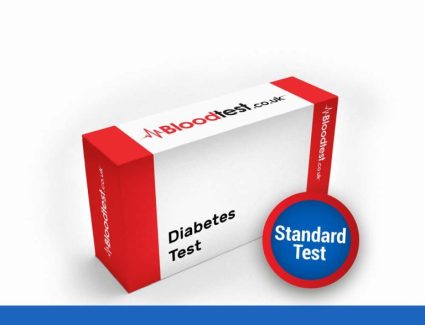Maximise Your Health with Routine Diabetes Testing: A Vital Component of Management
Recognising the Critical Need for Regular Diabetes Testing to Manage Your Condition Effectively

Managing a condition such as diabetes requires unwavering commitment to regular monitoring. Engaging in diabetes blood tests in Brentwood is far more than a mere routine; it is essential for effective health management. By diligently tracking blood sugar levels, individuals can take proactive steps to manage their condition, significantly lowering the risk of severe complications. Elevated blood sugar levels can result in serious health issues, including cardiovascular diseases, nerve damage, and kidney problems. Staying informed about glucose levels empowers patients to make timely adjustments to their diet, medication, and lifestyle choices, which can prove to be life-saving.
Moreover, the emotional and psychological advantages of regular testing are equally important. Keeping track of one's health status not only provides reassurance but also empowers individuals to take control of their diabetes management. This awareness fosters a sense of autonomy over their health, promoting overall well-being and enhancing emotional resilience.
Interested in Listening to Our Engaging Podcast?
 Establishing the Ideal Frequency for Diabetes Testing for Your Needs
Establishing the Ideal Frequency for Diabetes Testing for Your Needs
The frequency of diabetes blood tests in Brentwood is not uniform; it significantly varies based on an individual's specific health circumstances and the type of diabetes diagnosed. Those with type 1 diabetes often require multiple blood sugar checks daily to manage their condition effectively. In contrast, individuals with type 2 diabetes may find that testing once a day or several times a week suffices. For those who are not on insulin, healthcare professionals generally recommend testing every three months to ensure adequate oversight and management of their condition.
Additionally, changes in life circumstances, such as adjustments to medication, modifications in diet, or alterations in exercise routines, may necessitate an increase in testing frequency. Recognising these variables is essential for successful diabetes management. Regular consultations with healthcare practitioners can help establish a personalised testing regimen that addresses individual needs, ultimately promoting optimal health outcomes.
The Advantages of Choosing Local Testing Facilities for Your Diabetes Management
Accessing local testing facilities provides considerable benefits for individuals striving to manage their diabetes effectively. In Brentwood, numerous clinics and healthcare providers are readily available, simplifying access to diabetes blood tests. This convenience minimises travel time and alleviates the stress associated with attending appointments, thus fostering more consistent monitoring.
Having testing centres situated close to home not only enhances the patient experience but also encourages adherence to testing schedules. The ease of visiting a nearby clinic or pharmacy for a quick check increases the likelihood of regular monitoring, which is especially crucial for those balancing busy lives, thereby reducing the chances of missing tests or delaying essential checks.
Furthermore, local facilities often foster a welcoming community atmosphere, facilitating the sharing of experiences and advice among patients, which can further motivate them to take an active role in their health management journey.
Understanding the Impact of Regular Diabetes Testing on Long-term Health Outcomes

Engaging in regular diabetes testing bears significant implications for long-term health. Consistent monitoring allows for the early detection of potential health issues, facilitating timely interventions before complications arise. Research indicates that maintaining blood glucose levels within recommended ranges can substantially decrease the likelihood of complications such as neuropathy, retinopathy, and renal disease.
Moreover, routine testing can dramatically enhance the quality of life for patients. Individuals who actively manage their diabetes through consistent testing frequently report feeling better overall, with increased energy levels and fewer health-related concerns. This proactive approach not only extends life expectancy but also enriches daily living, empowering individuals to lead more fulfilling and active lifestyles.
Recognising the connection between regular testing and improved long-term health outcomes can inspire individuals to commit to their diabetes management plans with diligence. It highlights the importance of consistent, manageable efforts that can yield substantial health benefits over time.
Exploring Technological Innovations Revolutionising Diabetes Testing
The realm of diabetes management has witnessed remarkable advancements in recent years, particularly regarding testing technologies. Innovations such as continuous glucose monitors (CGMs) provide cutting-edge solutions for individuals managing their diabetes. These devices deliver real-time glucose readings, enabling immediate insights and adjustments concerning insulin dosages or dietary choices.
In Brentwood, the accessibility of such advanced technologies is rapidly increasing. This growing availability empowers individuals to embrace more sophisticated health monitoring methods, ultimately leading to improved management outcomes. Furthermore, smartphone applications complement these innovations, allowing users to effortlessly track their blood sugar levels, medication schedules, and dietary habits.
As technology continues to evolve, it promises to make diabetes management increasingly efficient and accessible. For residents of Brentwood, adopting these advances can significantly enhance their capacity to maintain stable blood glucose levels and improve overall health outcomes.
Exploring Different Types of Diabetes Blood Tests: What You Need to Know
The Fasting Blood Sugar Test: An Essential Diagnostic Tool

The fasting blood sugar test continues to be one of the most frequently employed methods for diagnosing diabetes and monitoring blood sugar levels. This test measures blood glucose levels after an overnight fast, providing a clear indication of how the body manages sugar without the influence of recent food intake. Generally, a reading of 6.1 mmol/L or higher raises concerns about potential diabetes.
In Brentwood, healthcare providers typically recommend this test as part of routine medical check-ups, particularly for individuals with risk factors such as obesity or a family history of diabetes. The straightforward nature of this test makes it an accessible first step in the diabetes management journey.
Moreover, understanding the implications of the results can empower patients. A high fasting blood sugar level may necessitate lifestyle changes, increased monitoring, or further testing. This proactive response can lead to early interventions that significantly enhance long-term health outcomes.
Interpreting the HbA1c Test: Essential for Long-term Diabetes Management
The HbA1c test serves as a cornerstone of effective long-term diabetes management, providing an average of blood glucose levels over the preceding two to three months. This test evaluates the effectiveness of blood sugar control, yielding vital insights into an individual’s overall diabetes management efforts. An HbA1c level below 42 mmol/mol reflects non-diabetic levels, while higher readings may indicate pre-diabetes or diabetes.
In Brentwood, healthcare providers frequently incorporate the HbA1c test during annual check-ups or when modifying management plans. Understanding the results can assist individuals in setting realistic goals and inspire them to adhere to their treatment protocols.
Furthermore, the HbA1c results enable healthcare professionals to tailor diabetes management strategies, which may encompass dietary modifications, medication adjustments, and lifestyle changes. This collaborative approach encourages individuals to take ownership of their health management journey.
The Oral Glucose Tolerance Test: A Vital Diagnostic Procedure
The oral glucose tolerance test (OGTT) holds particular significance for diagnosing gestational diabetes but can also be used for other forms of diabetes. This test necessitates an overnight fast followed by the consumption of a glucose solution, with subsequent blood sugar level checks at predefined intervals. It assesses how effectively the body processes sugar, providing essential diagnostic data.
In Brentwood, the OGTT is readily available in various healthcare settings, ensuring expectant mothers and individuals at risk of diabetes can access this crucial diagnostic tool. The results can offer invaluable insights, guiding healthcare providers in formulating effective management plans.
Being adequately prepared for the OGTT is imperative, as it requires a commitment to fasting and can take several hours to complete. Nevertheless, the insights gained from the test are invaluable for ensuring optimal health during pregnancy and beyond, facilitating proactive management of potential diabetes.
Finding Diabetes Testing Options in Brentwood: Your Guide to Accessing Care
Utilising Local GP Surgeries for Comprehensive Diabetes Testing Services
Numerous local GP surgeries in Brentwood offer essential diabetes testing services, simplifying access to necessary healthcare for residents. These surgeries typically provide various diabetes blood testing options, including fasting blood sugar and HbA1c tests. Most clinics require appointments, which can be easily scheduled through their online systems or by direct phone calls.
The familiar environment of local GP surgeries can create a comforting atmosphere for patients, as they often have established relationships with their healthcare providers. This continuity of care is crucial for effective diabetes management, enabling healthcare professionals to monitor changes and adjust treatment plans as necessary.
Moreover, utilising local GP services for diabetes blood tests in Brentwood often allows patients to receive comprehensive care, including lifestyle advice and referrals to diabetes education resources, all streamlined within one familiar setting.
Exploring Private Clinics for Swift and Efficient Diabetes Testing Solutions
For individuals seeking quicker access to testing, private clinics in Brentwood offer a valuable alternative. These facilities provide comprehensive diabetes testing services, often with the additional benefit of same-day results. This speed can be particularly advantageous for those eager to gain insight into their health status without unnecessary delays.
Private clinics typically employ advanced testing technologies and skilled staff, ensuring accurate and reliable results. Many of these clinics also offer personalised consultation services, allowing patients to discuss their results and receive tailored advice on effectively managing their diabetes.
The availability of private testing options in Brentwood alleviates some of the stress associated with traditional healthcare settings, enabling individuals to seek care in a more relaxed and focused environment.
Community Health Centres: Providing Affordable and Accessible Diabetes Testing
Community health centres in Brentwood play an essential role in delivering accessible and affordable diabetes testing options. These centres are often dedicated to serving populations with limited access to healthcare, ensuring routine testing is attainable for everyone, regardless of their financial circumstances.
Many community health centres offer sliding scale fees based on income, ensuring that cost does not obstruct access to necessary care. In addition to testing, these centres frequently provide education on diabetes management, nutrition, and lifestyle changes, empowering individuals with the knowledge needed to take control of their health.
Furthermore, the community-centric approach fosters a sense of belonging and support among patients, helping to establish a network of individuals who share similar experiences and understand one another. This camaraderie can significantly enhance the diabetes management journey for everyone involved.
Convenient Diabetes Testing Options Available at Local Pharmacies
Several pharmacies in Brentwood also provide diabetes testing services, offering an additional convenient option for individuals keen on monitoring their blood sugar levels. Many of these pharmacies have dedicated health clinics where patients can walk in and receive testing without needing an appointment. This flexibility is particularly beneficial for those with busy schedules or those requiring immediate testing.
Pharmacy-based testing typically involves a quick and straightforward process, with results provided promptly. Many pharmacists are trained to offer guidance on interpreting results and discussing next steps, making it an invaluable resource for individuals managing diabetes effectively.
The accessibility of testing services at local pharmacies contributes to a broader culture of health awareness within the community, encouraging more individuals to take charge of their diabetes management and overall health.
Preparing for Your Diabetes Test: A Thorough Guide to Success
Understanding Fasting Requirements for Accurate Testing Results
Preparing for a diabetes blood test is crucial for ensuring accurate results, particularly for tests that necessitate fasting. Most healthcare providers recommend fasting for 8 to 12 hours before a fasting blood sugar test. This period of abstaining from food allows for a clear assessment of baseline glucose levels, free from interference from recent meals.
Patients should follow specific instructions provided by their healthcare professionals, as recommendations may vary depending on the test type and individual health circumstances. Thorough preparation can lead to significant differences in results, facilitating more effective management plans tailored to each person's needs.
Understanding the importance of fasting helps individuals recognise that this brief period of abstaining from food is a minor sacrifice compared to the substantial benefits of obtaining valuable insights into their health status.
What to Bring to Your Diabetes Testing Appointment for a Streamlined Experience
When attending a diabetes blood test in Brentwood, being well-prepared can enhance the overall experience and streamline the process. Patients should bring essential items such as their NHS number, previous test results, and a comprehensive list of current medications. This information assists healthcare professionals in making informed decisions about testing and overall management.
Additionally, having past results readily accessible can facilitate discussions about changes in blood sugar levels and any necessary adjustments to treatment plans. It is also beneficial to inform the healthcare provider about any new symptoms or concerns that may have arisen since the last visit, ensuring a comprehensive approach to diabetes management.
Being well-prepared not only streamlines the testing process but also empowers patients to take an active role in their health journey, fostering a sense of control and engagement in their diabetes care.
Effectively Managing Anxiety Before Your Diabetes Testing Appointment
It is common for individuals to feel anxious before a diabetes blood test; however, managing this anxiety is crucial for a positive experience. Staying calm and well-hydrated before the test can help alleviate stress. Practising relaxation techniques, such as deep breathing or mindfulness, can also be beneficial in reducing feelings of apprehension.
Reframing the test as an opportunity to gain valuable insights rather than viewing it as a daunting task can shift one’s perspective. Reminding oneself of the significance of the test for long-term health can motivate a more positive approach to the experience.
Lastly, individuals should remember that healthcare professionals are present to support them, and open communication about any anxieties can lead to a more reassuring testing experience.
Interpreting Your Test Results: What They Mean for Your Health
Understanding Normal Blood Sugar Levels for Effective Diabetes Management
Comprehending what constitutes normal blood sugar levels is essential for individuals managing diabetes. For fasting blood sugar tests, a reading below 6.1 mmol/L is regarded as normal. An HbA1c level below 42 mmol/mol indicates non-diabetic status. Familiarising oneself with these benchmarks provides clarity and direction for effective diabetes management.
Being aware of what constitutes normal ranges empowers patients to recognise when their levels may be out of balance, prompting timely discussions with healthcare providers. This knowledge can inspire individuals to take proactive steps toward achieving and maintaining optimal blood sugar levels.
Being informed about these standards nurtures a sense of accountability, encouraging individuals to actively engage with their health management strategies.
Interpreting Elevated Blood Sugar Results: Essential Insights
Receiving high blood sugar test results can be concerning; however, it is vital to interpret these findings accurately. Elevated results may indicate pre-diabetes or diabetes, making it crucial to consult with a healthcare provider for further evaluation and management strategies.
Understanding the implications of high results empowers individuals to take immediate action. This may involve lifestyle changes such as adopting a healthier diet, increasing physical activity, or adjusting medication as advised by healthcare providers.
It is important to view high results not as a definitive diagnosis but as an opportunity for intervention. With appropriate support and guidance, individuals can work towards improved health outcomes and enhanced diabetes management strategies.
Determining Your Next Steps After Receiving Test Results
After receiving test results, discussing them with a healthcare provider is critical for developing an effective management or treatment plan. These discussions can facilitate a clearer understanding of the results and inform the next steps to be taken.
Depending on test outcomes, healthcare providers may recommend additional testing, lifestyle modifications, or medication adjustments. Collaborating on a management plan empowers individuals to take ownership of their health, enhancing their commitment to diabetes management.
Being proactive in seeking clarity about test results and potential next steps can significantly enhance long-term health outcomes. Establishing a partnership with healthcare providers fosters a supportive environment, ensuring that individuals feel guided and understood throughout their diabetes management journey.
Implementing Essential Lifestyle Changes Following a Diabetes Diagnosis
Prioritising Diet and Nutrition for Improved Health Outcomes
Adopting a balanced diet rich in fruits, vegetables, and whole grains is fundamental for effectively managing blood sugar levels. For individuals with diabetes, understanding how different foods affect glucose levels is crucial. Strategies such as carbohydrate counting can be effective, allowing individuals to make informed decisions about their meals.
In Brentwood, local nutritionists and diabetes educators can provide tailored dietary advice, helping individuals create meal plans that align with their health goals. Emphasising portion control and incorporating fibre-rich foods can enhance satiety and stabilise blood sugar levels.
Furthermore, being mindful of sugar intake is critical. Educating oneself about hidden sugars in processed foods can lead to healthier choices that support overall well-being and effective diabetes management.
The Importance of Regular Exercise for Diabetes Management
Engaging in regular physical activity is vital for improving insulin sensitivity and maintaining healthy blood sugar levels. For individuals managing diabetes, discovering enjoyable activities is crucial to sustaining motivation. In Brentwood, a variety of local exercise options are available, including parks for walking, running, or cycling, as well as fitness centres that offer classes tailored for individuals with diabetes.
Regular exercise not only aids in weight management but also bolsters cardiovascular health, further supporting overall diabetes management. Incorporating a combination of aerobic and resistance training can yield optimal benefits, enhancing muscle mass and improving metabolic health.
Establishing a consistent exercise regimen is an effective strategy for managing diabetes, encouraging individuals to remain active and take a proactive approach to their health.
Effective Strategies for Managing Stress in Diabetes Care
Managing stress is essential for those living with diabetes, as stress can significantly impact blood sugar levels. Techniques such as meditation, yoga, and deep breathing exercises can help mitigate stress and promote overall relaxation.
In Brentwood, community centres often provide classes in mindfulness and stress-relief practices, offering individuals valuable resources for managing their mental well-being. Engaging in hobbies, spending quality time with family and friends, and seeking support from peers or support groups can also contribute to better stress management.
Taking the time to address stress benefits not only emotional health but also physical health outcomes, reinforcing the importance of holistic self-care in diabetes management strategies.
Prioritising Quality Sleep for Enhanced Diabetes Management
Prioritising quality sleep is vital for those managing diabetes. Research highlights a strong connection between poor sleep patterns and impaired glucose regulation. Aiming for 7-9 hours of quality sleep each night can support overall health and help maintain stable blood sugar levels.
Establishing a calming bedtime routine can foster improved sleep hygiene. In Brentwood, local resources may offer workshops on sleep health or relaxation techniques to help individuals enhance their sleep quality.
Recognising the significance of rest and recovery is essential for maintaining not only physical health but also mental well-being. Developing healthy sleep habits can make a considerable difference in the effective management of diabetes.
Available Support and Resources in Brentwood for Diabetes Management
Joining Diabetes Support Groups for Community Engagement and Encouragement
Participating in local support groups in Brentwood can provide individuals with a sense of community, offering a platform to share experiences and advice. These groups typically meet regularly, fostering relationships among members who understand the challenges of living with diabetes.
Support groups can offer emotional encouragement, practical tips for managing daily challenges, and valuable insights into effective diabetes management strategies. Engaging with others facing similar situations can significantly enhance motivation and accountability in health management.
In addition to peer support, these groups may invite healthcare professionals to speak on various topics, further enriching members' understanding of diabetes and its management. This collaborative approach fosters a sense of belonging and empowerment within the community.
Enhancing Knowledge Through Educational Workshops on Diabetes Management
Educational workshops play a critical role in equipping individuals with the knowledge and tools necessary for effective diabetes management. In Brentwood, various organisations offer workshops covering topics such as nutrition, exercise, and stress management, all tailored to those living with diabetes.
These workshops enable participants to learn from experts and gain practical skills that can be applied in their daily lives. Engaging in such educational opportunities can foster confidence in managing diabetes, leading to more positive health outcomes over time.
Moreover, workshops often encourage participants to connect with others, building a supportive network that extends beyond the classroom and thus enhances the community's overall health awareness and engagement.
Addressing Common Questions About Diabetes Testing: Your Queries Answered
What is the primary purpose of a diabetes blood test?
A diabetes blood test measures the amount of glucose in your blood to diagnose diabetes or monitor blood sugar levels effectively for maintaining good health.
How frequently should I undergo testing for diabetes?
The frequency of testing varies based on individual health conditions and the type of diabetes. Generally, it can range from daily monitoring to quarterly testing, with regular consultations guiding appropriate schedules.
Where can I access diabetes blood testing services in Brentwood?
In Brentwood, diabetes blood tests are available at local GP surgeries, private clinics, community health centres, and select pharmacies for convenient access.
What steps should I take if my test results indicate high blood sugar?
If your test results demonstrate elevated blood sugar levels, it is important to consult your healthcare provider for further evaluation and to discuss potential management strategies.
What lifestyle modifications can assist in effective diabetes management?
Adopting a balanced diet, engaging in regular exercise, managing stress levels, and prioritising quality sleep are essential lifestyle changes that can collectively aid in effective diabetes management.
Are there support groups available for individuals with diabetes in Brentwood?
Yes, Brentwood features several local support groups that provide community, advice, and shared experiences for individuals living with diabetes.
What does the HbA1c test measure in diabetes management?
The HbA1c test provides an average blood glucose level over the past 2-3 months, offering valuable insights into long-term diabetes management and control.
Is fasting necessary before a diabetes blood test?
Yes, many diabetes blood tests, especially fasting blood sugar tests, require fasting for 8-12 hours beforehand to ensure accurate results.
Can diabetes be managed without medication?
In some cases, lifestyle changes such as diet and exercise can effectively manage diabetes without medication; however, this varies by individual and should be discussed with a healthcare provider.
What educational resources are available for diabetes management in Brentwood?
Brentwood offers various educational workshops and resources tailored to diabetes management, including classes and seminars at local community centres and healthcare providers.
Connect with us on Facebook!
This Article Was First Found On https://bloodtest.co.uk
The Article Diabetes Blood Test: A Local Guide for Brentwood Residents Was Found On https://limitsofstrategy.com
